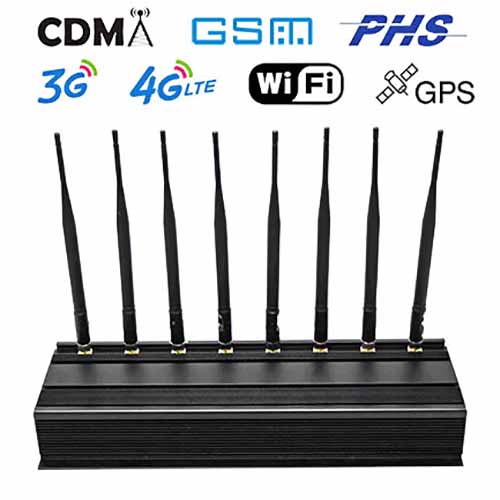OKLAHOMA CITY - Thousands of illegal cell phones end up in the hands of prison inmates who use the devices to commit crimes. However, prison officials testified Monday that they are prohibited from using any of the best means to stop this - cell phone jammer.

Prison officials from Oklahoma and South Carolina testified before an Oklahoma Senate committee about the effectiveness of cell phone jamming technology. Federal law prohibits government use of this technology, and the wireless industry opposes it.
Oklahoma confiscated more than 5,200 smuggled cell phones from inmates in the past year. While that's a decrease from about 7,500 seen a year earlier, the problem remains a serious problem, said Mike Carpenter, chief of security for the Oklahoma Department of Corrections.
Carpenter said a fight between rival gangs in an Oklahoma prison last month had rapidly escalated with the use of contraband cell phones in melee prisons in several other prisons. One inmate was killed and more than a dozen injured.
"Do I think a (cell phone) jam would work? Definitely," said Carpenter.
According to Gerard Keegan, a spokesman for the Cellular Telecommunications and Internet Association, the wireless industry is opposed to the use of cell phone jamming signals in prisons, largely because of concerns that it would block signals for legitimate users as well.
Instead, he says the group is supporting a "managed access" system that uses technology to determine what signals are from smuggled phones in a prison so that steps can be taken to disable those target phones. He said the group also supports further testing of cell phone jamming techniques.
The federal law, according to which states may use jammers, is still pending in the House and in the Senate.
"My proposal is simple," US Senator James Lankford, R-Oklahoma, told the US Senate earlier this year. "To protect our guards, protect our families, and stop criminal activity in our prisons, let's block cell phones in prison."
Last year, federal officials at a federal prison in Cumberland, Maryland tested the micro-jammers and said they could turn off phone signals in a prison cell while equipment operated normally about six meters away.





